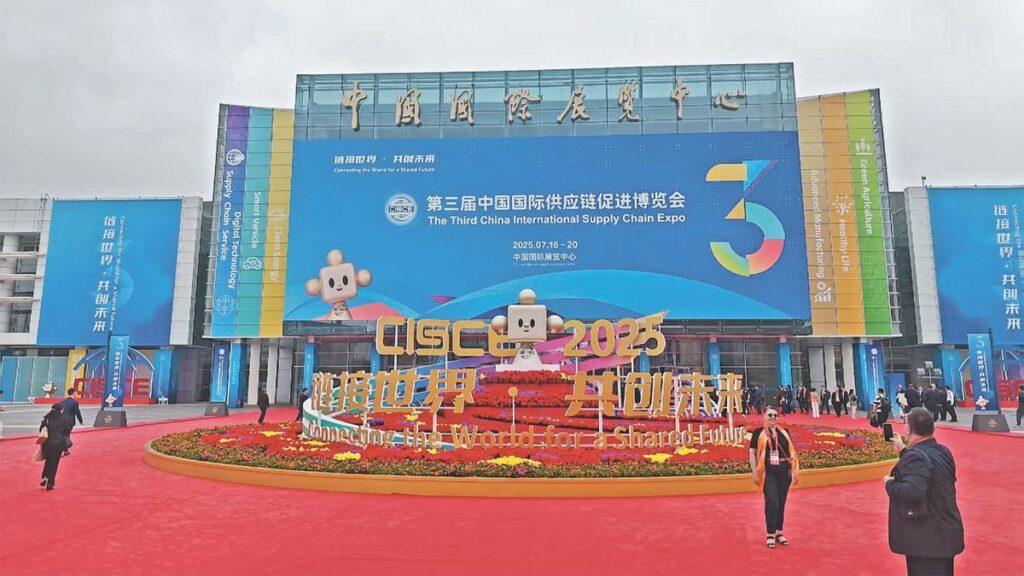Introduction
Mexico is a natural destination for relocating investments seeking greater certainty amidst the global fragmentation of trade, as per Diana Gamboa, Communications and Media Manager at the Mexico-China Chamber of Commerce and Technology.
China’s Investment in Mexico
Currently, China ranks as the third-largest investor in Mexico. According to data from the Secretary of Economy, there are over 1,000 Chinese companies formally registered in Mexico under foreign direct investment regulations. However, the Mexico-China Chamber of Commerce and Technology estimates that the actual number could be between 4,000 to 5,000 if including representation offices, distributors, or commercial intermediaries.
Global Trade Reconfiguration
José Manuel Salazar Xirinachs, Executive Secretary of the United Nations Economic Commission for Latin America and the Caribbean (ECLAC), states that we are in the midst of a “realignment” of global trade, led by the United States and particularly concerning China. The recommended strategy is diversification.
Mexico’s Trade Dominance
Víctor Gómez Ayala, Chief Economist at Finamex Casa de Bolsa, acknowledges that Mexico’s clear trade dominance is with the United States. While he admits imports show more diversity and Asia’s market appears, it doesn’t seem the most opportune option at present.
Critical Mass, Appetite, and Policy
Salazar Xirinachs emphasizes that Mexico possesses critical mass in industries like aerospace, medical devices, software, and numerous clusters generating virtuous cycles to attract more investment and development.
Gamboa admits that a decade ago, Mexico was primarily seen as an assembly platform to access the US market. “Today, that perception has evolved into a long-term strategic bet,” she says.
She highlights that Chinese companies also recognize Mexico’s advantages due to its privileged geographical position, access to over 50 markets through trade agreements, macroeconomic stability, competitive costs, and a young, skilled labor force.
However, Alberto Quiroz, Public Affairs Manager at Integralia, reminds us that it’s a concern for Mexico to prevent the US from perceiving Mexico as a triangulation point for Chinese products. This is a political concern amidst the upcoming trade agreement review.
Chinese Companies and BYD
Gamboa mentioned companies like Hisense, Minth Group, Huawei, Kuka Home, Hangzhou XZB, JAC Motors, Changan, ICBC, and Honghua Group that have chosen Mexico not just as an export platform but also as a strategic market.
She discussed BYD, stating there’s no cancellation but a gradual expansion strategy responding to the country’s operational environment. She also referred to Dragon Mart in 2012, intended as a wholesale center for Chinese businesses in Quintana Roo, which ultimately didn’t materialize. Both cases reflect the challenges large-scale projects face when full alignment between community, government, and business isn’t achieved.
Key Questions and Answers
- Q: Why is Mexico a preferred destination for Chinese investments? A: Mexico offers critical mass in industries like aerospace, medical devices, and software, along with numerous clusters generating virtuous cycles for more investment and development.
- Q: How has global trade reconfiguration affected Chinese investment strategies? A: The fragmentation of global trade has redefined Chinese companies’ investment strategies, pushing them towards diversification and long-term strategic bets like Mexico.
- Q: What are some notable Chinese companies investing in Mexico? A: Hisense, Minth Group, Huawei, Kuka Home, Hangzhou XZB, JAC Motors, Changan, ICBC, and Honghua Group are among the companies that have chosen Mexico as a strategic market.
- Q: What challenges do large-scale Chinese projects in Mexico face? A: Challenges include ensuring full alignment between the community, government, and business to avoid issues like those faced by Dragon Mart and BYD’s gradual expansion strategy.






